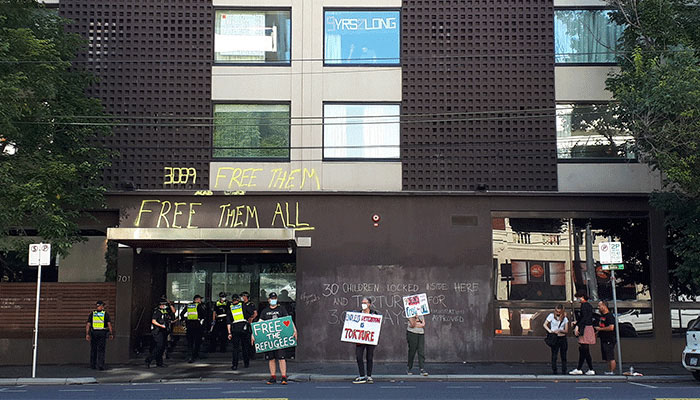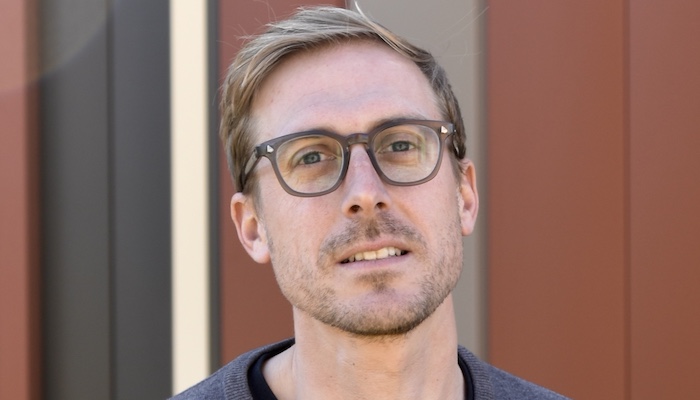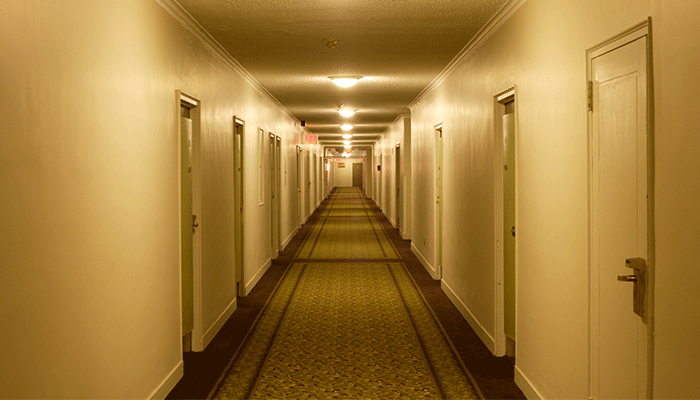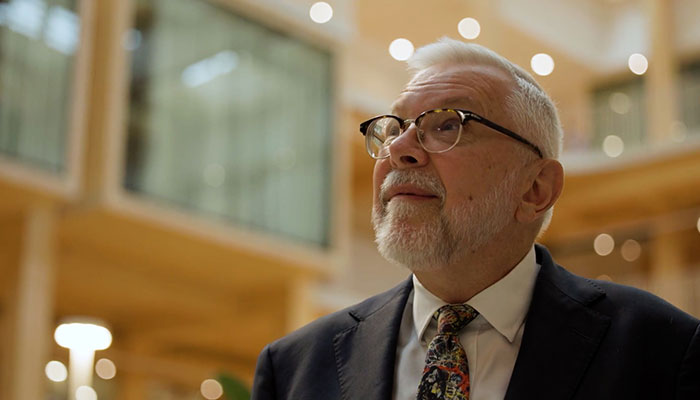The 8 November ruling in the High Court of Australia is a welcome sign for the end of Australia’s use of indefinite detention, and the result of significant work to reach this point.
This ruling is pertinent to those held in dedicated detention facilities, some for more than 10 years, such as the Villawood Immigration Detention Centre in Western Sydney. But it also points to the potential for the end of a largely hidden aspect of Australia’s detention regime, that of holding people in hotels and motels.

Protests: Human rights advocates outside The Park Hotel in Melbourne which was part of the alternative places of detention (APODS) scheme between late 2019 and early 2022. Image: Andrew Burridge
Australia’s use of mandatory detention was established in 1992 under the then Keating Labor government, coming into operation in 1994. This was coupled with the use of indefinite detention, that extended the previously existing time limit of 273 days. Since this time, the average time in detention in Australia, both onshore and offshore (including on non-Australian territory, such as Nauru and Papua New Guinea) has skyrocketed, and currently it sits at more than 700 days.
At Macquarie University, I have been researching the effects of a little-known practice of Australia’s immigration detention system, referred to as ‘alternative places of detention’ (APODs), a policy implemented in 2002, as well as the broader global use of hotels in countries spanning the United States and Canada, as well as the United Kingdom and the European Union, used for both closed detention and asylum ‘accommodation ’.
The men detained in hotels across Melbourne, Brisbane, and elsewhere, protested their detention, acknowledging the prison-like conditions of being held in hotel rooms, where often, windows could not be opened and access to outdoor exercise space was not available.
Initially, APODs were intended to provide a safer space for women and children held in immigration detention. In particular, these ‘alternative places’ include the use of hotels and motels, from individual rooms for a single night, to entire hotels for several years. Over time, the remit of hotel APODs has shifted to the detention primarily of individual adult men, for indefinite periods.
The use and location of hotels is difficult, if not impossible to trace in its entirety. In December 2022, with Associate Professor Daniel Ghezelbash, we published a map of all known hotels previously used by the Australian government. Following several years of chasing Freedom of Information Requests, Senate Estimates Inquiries, and other avenues, we were only able to identify 34 hotels used over the 20-year period. In contrast, it was acknowledged by the Australian government that from 1 January 2018 to 31 January 2021 alone, there were 170 APODs used in Australia, 56 of which were hotels.
The use of hotels as sites of indefinite detention was particularly evidenced from late 2019 until early 2022. Those transferred under the short-lived Medevac provision, were held in hotels across Australia , including the Park Hotel in Melbourne, a hotel that had also been used for Covid-19 quarantine before sparking one of the largest outbreaks in Melbourne, as well as briefly holding the professional tennis player Novak Djokovic, before his deportation. Those held were mostly men, though women were also held in hotel detention during this time, primarily in Brisbane.
During this period, the men detained in hotels across Melbourne, Brisbane, and elsewhere, protested their detention, acknowledging the prison-like conditions of being held in hotel rooms, where windows often could not be opened, and access to outdoor exercise space was not available without being transferred to a dedicated detention centre. With the arrival of Covid-19, these protests found new purpose, given the high likelihood of the disease being transmitted through the cramped spaces of the hotel rooms and corridors. In some hotels, upwards of 100 men were detained. Outbreaks, as predicted, spread throughout the hotels.

Hopeful: Dr Andrew Burridge, pictured, is optimistic the recent High Court Ruling on indefinite detention will also eventually bring an end to people being held indefinately in hotels and motels in Australia.
The Australian Human Rights Commissioner, one of the few inspectorates able to access the hotels has noted repeatedly, since at least 2010, hotels are inappropriate spaces for detention, and were found to be the most punitive of all detention facilities in Australia. Medevac transferees referred to the hotels not as spaces of respite and relaxation, but instead as prisons and torture sites.
The Australian government has insisted that hotel detention is used for the shortest time possible, yet many languished in hotel rooms indefinitely, until their eventual release in early 2022. The recent High Court ruling provides cautious optimism that others will not face the same indefinite timeframe of being held within a confined hotel room, unknown to the outside world.
Dr Andrew Burridge is a Senior Lecturer in Human Geography in the School of Social Sciences who collaborated on this research with students undertaking a Professional Social Research Project.




